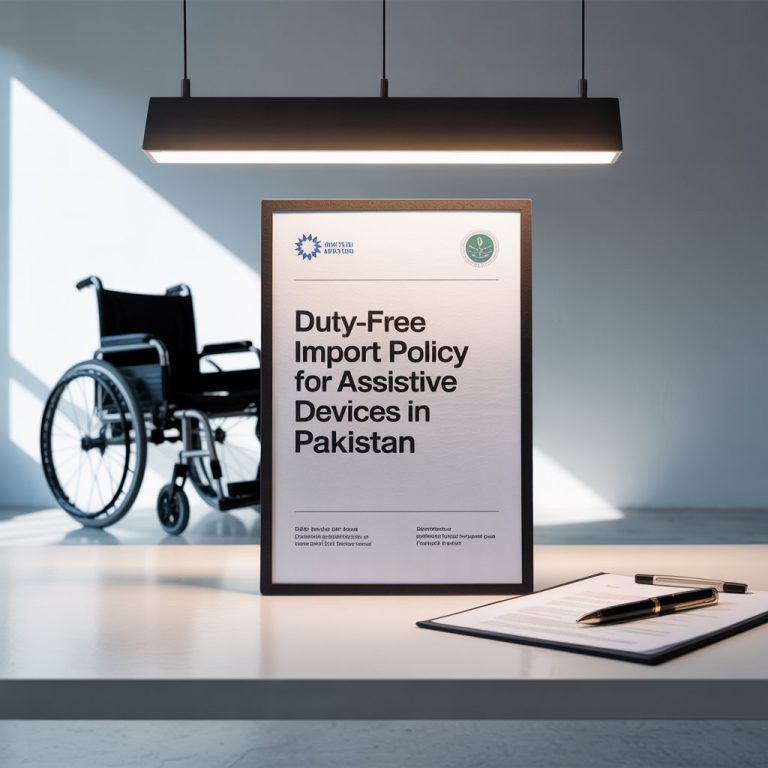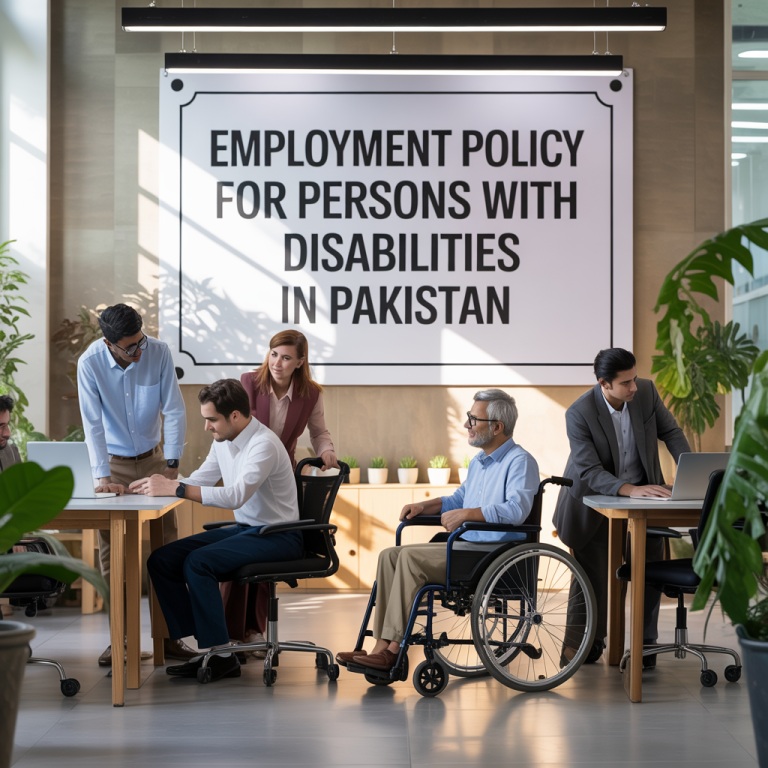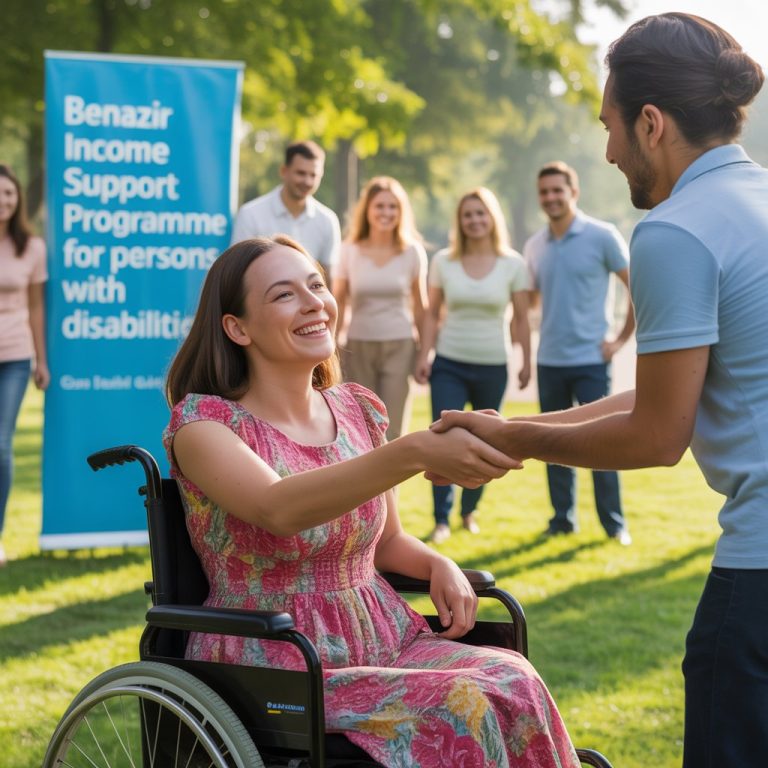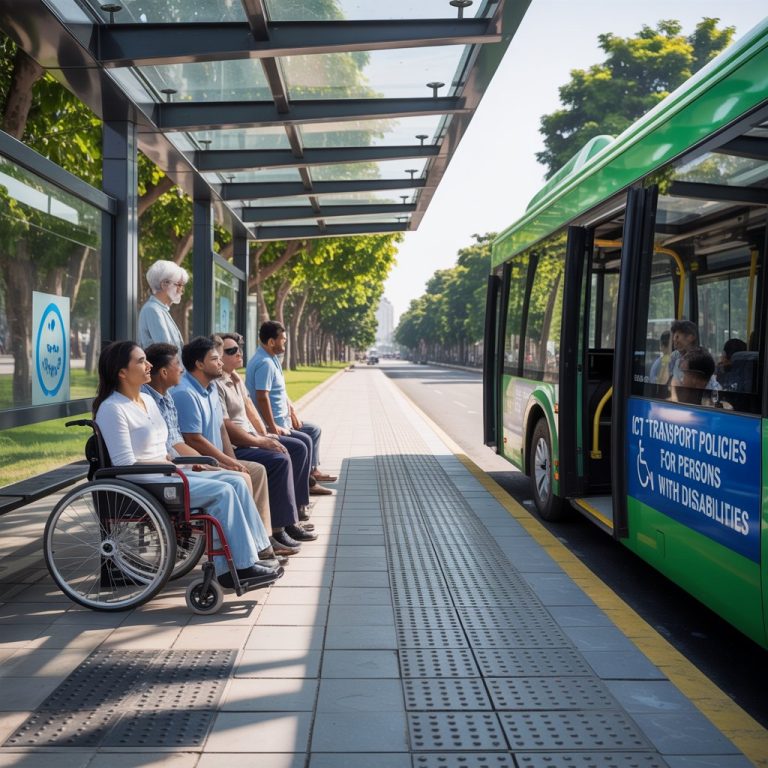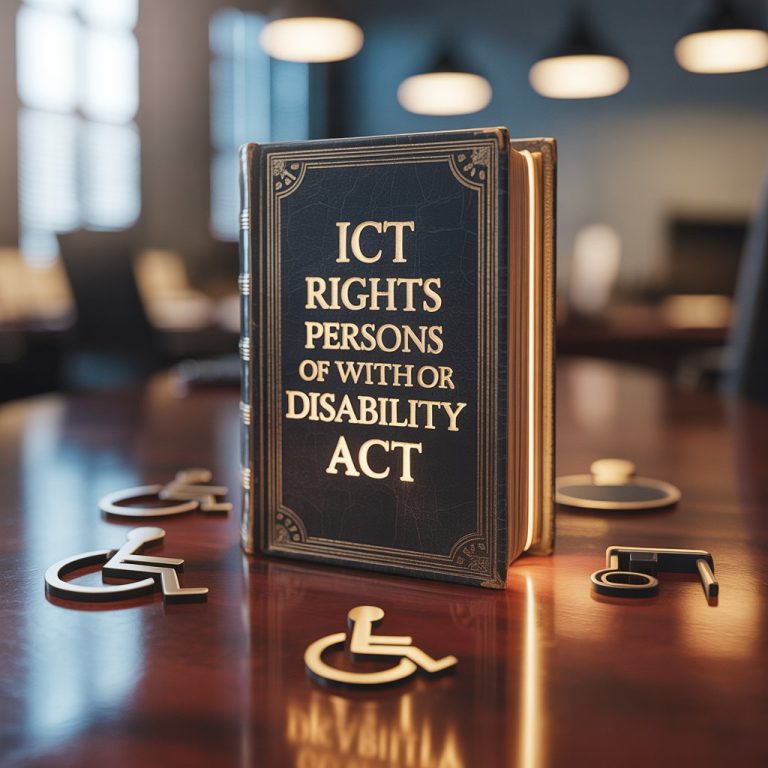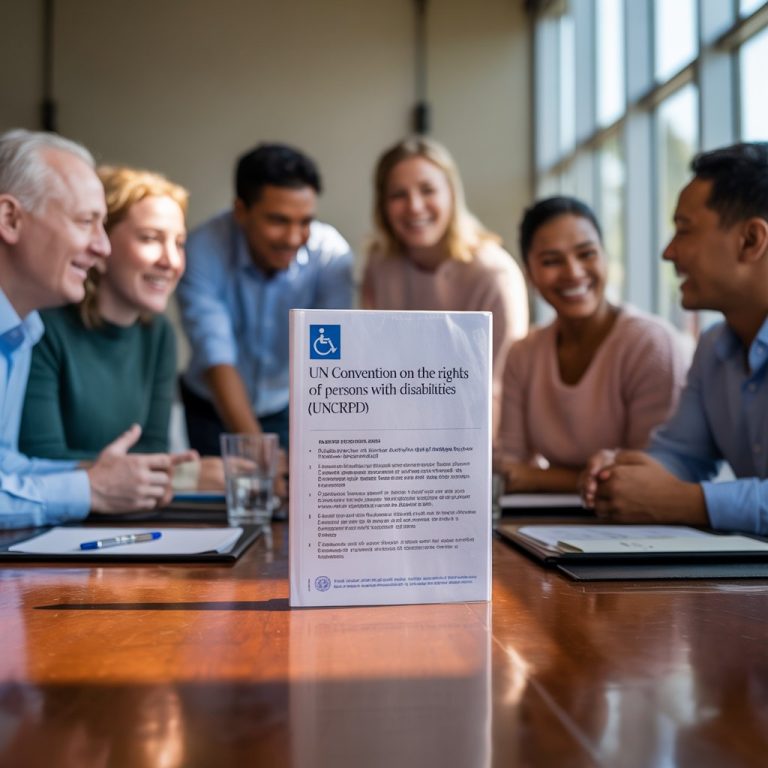Balochistan Rights of Persons with Disability Act
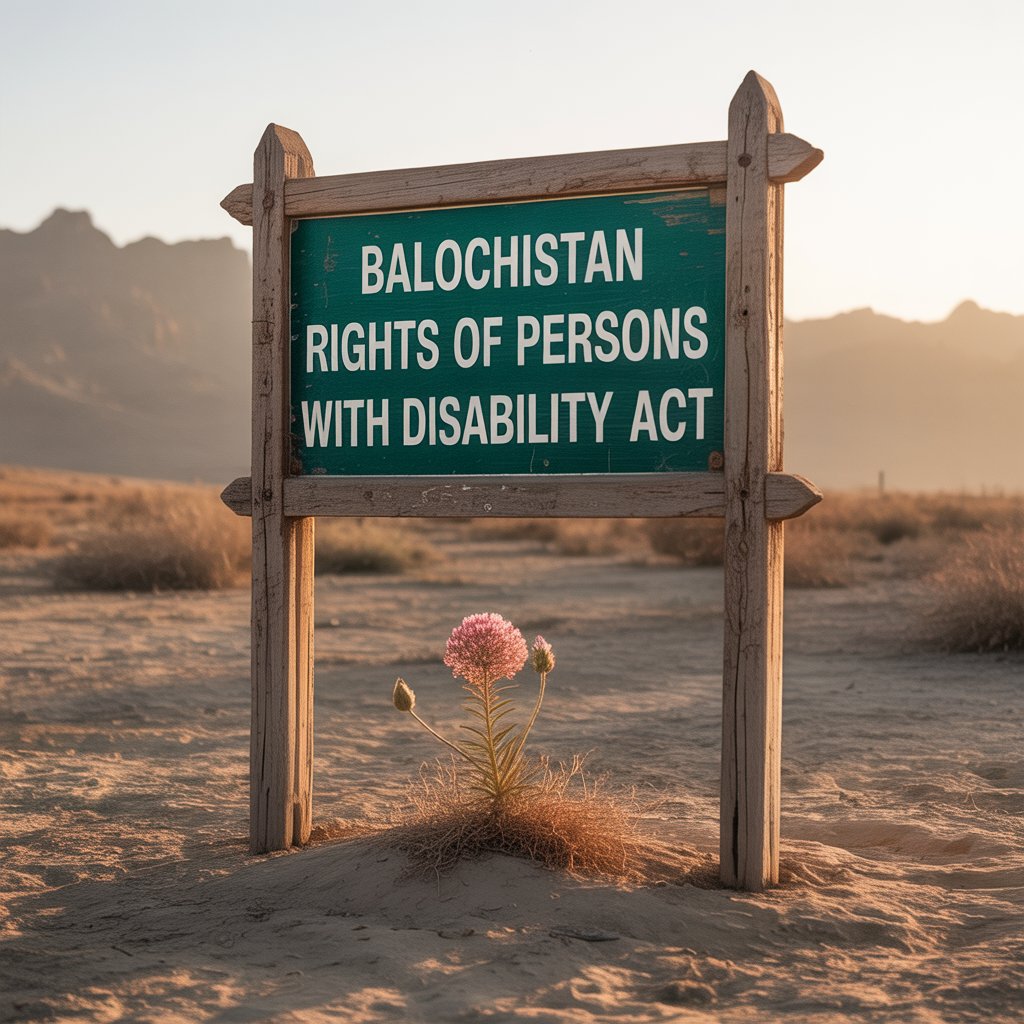
The Balochistan Rights of Persons with Disability Act stands as a critical step toward ending decades of marginalization and systemic neglect of persons with disabilities (PWDs) in the province. Balochistan, known for its vast geography and developmental disparities, historically lacked a comprehensive legal framework to support the rights and needs of its disabled citizens. The introduction of this Act aligns the province with Pakistan’s national and international commitments, particularly the UN Convention on the Rights of Persons with Disabilities (UNCRPD).
This legislation enshrines a set of enforceable rights related to education, employment, health, mobility, and legal protection, while also creating institutional structures for implementation, monitoring, and accountability.
Why Balochistan Needed a Disability Law
Despite being the largest province in Pakistan by area, Balochistan has long suffered from under-resourced services and minimal infrastructure—gaps that are even more pronounced for persons with disabilities. The province:
- Had no legal obligation for disability inclusion in schools, workplaces, or public services.
- Relied on outdated federal laws with weak enforcement capacity.
- Lacked a provincial disability authority to coordinate services and redress violations.
Following the 18th Constitutional Amendment, provinces gained legislative autonomy—paving the way for Balochistan to establish its own inclusive disability law tailored to its context.
Legislative Milestones and Stakeholder Role
The Act was drafted after extensive consultation with:
- Disabled Persons Organizations (DPOs)
- Civil society activists
- Legal experts
- Departments of Social Welfare and Law
The Balochistan Assembly passed the law to affirm its constitutional responsibility and align with Article 19 and 25 of the Constitution, which guarantee equality, dignity, and non-discrimination for all.
Scope of the Act and Definitions of Disability
The Act adopts a broad and inclusive definition of disability, encompassing:
- Physical impairments
- Visual and hearing impairments
- Intellectual and developmental conditions
- Psychosocial disabilities
- Chronic illnesses impacting daily functioning
It applies to all residents of Balochistan, ensuring that both urban and remote rural populations are covered.
Core Rights and Principles of the Balochistan Disability Act
Key guiding principles include:
- Non-discrimination in all aspects of life
- Accessibility in infrastructure, technology, and information
- Participation in decision-making
- Affirmative action through policies like quotas
- Respect for autonomy and legal capacity
These reflect the values of the UNCRPD and the Sustainable Development Goals (SDGs).
Institutional Mechanism: Balochistan Disability Rights Authority
To enforce the law, the Balochistan Disability Rights Authority (BDRA) has been established with responsibilities including:
- Policy coordination and enforcement
- Registration and certification of PWDs
- Monitoring implementation of services
- Grievance redress and legal compliance
The authority includes representatives from DPOs, women’s groups, and legal experts, ensuring participatory governance.
Education Rights and Inclusive Schooling
The Act guarantees:
- Compulsory and free education for children with disabilities
- Inclusive classrooms with reasonable accommodations
- Provision of assistive devices like Braille books, sign language interpreters, and visual aids
- Teacher training on inclusive pedagogy
No educational institution may refuse admission based on a disability.
Employment Provisions and Workplace Equality
To empower PWDs economically, the Act ensures:
- 2% job quota in public sector institutions
- Incentives for private sector employers
- Establishment of vocational training and skill development centers
- Workplace adjustments to remove physical or attitudinal barriers
Healthcare, Assistive Devices, and Rehabilitation
The Act commits to:
- Free or subsidized access to disability-friendly health facilities
- Mobile health units in rural and conflict-affected areas
- Availability of rehabilitation centers and counseling services
- Provision of assistive technologies like wheelchairs, white canes, and hearing aids
Infrastructure and Transport Accessibility
All public buildings, including:
- Hospitals
- Courts
- Schools
- Government offices
must ensure:
- Ramp access
- Tactile flooring
- Accessible toilets and signage
- Public transport (including intercity buses and terminals) must accommodate wheelchair users and provide audio-visual support systems.
Access to Justice and Legal Capacity
PWDs are guaranteed:
- Equal standing before the law
- Access to legal aid
- Protection from discrimination, exploitation, or abuse
- Legal recognition of support persons or guardians when necessary
Complaint mechanisms are available at district and provincial levels, with swift timelines for redress.
Rights of Women and Girls with Disabilities in Balochistan
Recognizing the double discrimination faced by women and girls with disabilities, the Act provides:
- Protection from gender-based violence
- Equal access to education, jobs, and reproductive health services
- Leadership representation in DPOs and government forums
Children’s Rights and Early Support Services
Children with disabilities have the right to:
- Early identification and intervention
- Individualized support plans in schools
- Inclusive recreational spaces and community engagement
- Family training and parental support programs
Emergency Services and Climate Resilience
Given Balochistan’s vulnerability to natural disasters:
- All emergency response plans must be disability-inclusive
- Relief information must be shared in accessible formats
- Shelters and health camps must be physically accessible
- Rescue personnel must receive disability awareness training
Digital Accessibility and ICT Inclusion
The Act mandates that:
- Government websites comply with Web Content Accessibility Guidelines (WCAG)
- Apps, portals, and services like online education and e-governance are inclusive
- Banks and telecoms provide assistive-friendly ATMs and helplines
Disability Certification and Welfare Registration
A province-wide registry is to be maintained in collaboration with NADRA, enabling:
- Streamlined access to social protection benefits
- Prioritized allocation of housing, health, and education subsidies
- Statistical data for planning and policymaking
Public Awareness and Social Behavior Change
To combat stigma, the Act requires:
- Media campaigns showcasing inclusive narratives
- Sensitization of public officials
- School curricula updates with disability-inclusive content
- Promotion of sign language and disability etiquette in public spaces
Monitoring, Accountability, and Reporting
The Balochistan Disability Rights Authority is required to:
- Submit annual reports to the Provincial Assembly
- Track progress through measurable key performance indicators (KPIs)
- Allow for third-party audits and public disclosure
Enforcement and Penalties for Non-Compliance
Institutions violating the Act may face:
- Fines
- Suspension of licenses
- Court proceedings for discrimination or abuse
This establishes a much-needed legal deterrent.
Civil Society and DPO Participation
Groups like:
- Voice of Special Persons Balochistan
- Disability Welfare Trust Quetta
- Pakistan Association of the Deaf – Balochistan chapter
are integral to:
- Legal advocacy
- Rights awareness
- Monitoring and complaints processing
Budgetary Allocations and Resource Needs
Implementation depends on:
- Dedicated budget lines in annual provincial planning
- Collaboration with development partners like UNDP, CBM, and WHO
- Mobilization of local governments and district-level funds
Comparing Balochistan’s Law with Other Provinces
| Feature | Balochistan | Sindh | Punjab (Draft) | KP |
|---|---|---|---|---|
| Disability Authority | Yes | Yes (SEPDA) | Yes (proposed) | Yes |
| Employment Quota | 2% | 5% | 2%–3% | 2% |
| ICT Accessibility Mandate | Yes | Yes | Yes | Mentioned |
| Gender-Specific Protections | Yes | Yes | Yes | Yes |
| District Implementation | In progress | Operational in urban | Draft guidelines | Mixed progress |
Implementation Challenges in Balochistan
- Low literacy rates and lack of disability awareness
- Geographic and security constraints in remote regions
- Budgetary limitations for infrastructure retrofitting
- Shortage of trained professionals in assistive technology and inclusive education
Judicial Support and Legal Precedents
Courts have already taken notice in cases of:
- Denial of education to children with disabilities
- Employment discrimination in public departments
- Denied access to polling stations during elections
Such interventions demonstrate the critical role of judiciary in enforcing this law.
Integration with National and Global Frameworks
The Act is aligned with:
- UNCRPD Articles 1–30
- Pakistan Vision 2025
- Sustainable Development Goals (SDGs) such as:
- SDG 4: Inclusive education
- SDG 8: Decent work
- SDG 10: Reduced inequality
- SDG 11: Sustainable, inclusive cities
Future Reforms and Strategic Recommendations
- Expand the list of duty-free assistive imports
- Integrate inclusive design in all new urban projects
- Launch a provincial disability innovation fund
- Develop mobile apps for service delivery and reporting
- Engage youth and women with disabilities in policy feedback loops
Conclusion: Building an Inclusive Balochistan
The Balochistan Rights of Persons with Disability Act is a powerful declaration of intent—intent to protect, empower, and include. It addresses long-ignored structural inequalities and offers a roadmap for inclusive development. But for laws to mean anything, they must be lived, funded, enforced, and understood. That’s the real challenge—and opportunity.
Together, through law, compassion, and collaboration, Balochistan can lead Pakistan’s disability rights revolution from the margins to the mainstream.
FAQs
What is the employment quota for persons with disabilities in Balochistan?
A minimum of 2% in public-sector employment.
Can I report a rights violation under this Act?
Yes, through the Balochistan Disability Rights Authority or local grievance cells.
Is inclusive education mandatory under this law?
Yes, schools are legally required to admit and accommodate students with disabilities.
Does the Act cover assistive devices?
Yes, the law mandates free or subsidized assistive tools for eligible persons.
How do I get a disability certificate in Balochistan?
Apply through local SEPWD offices or online, with NADRA-linked verification.
